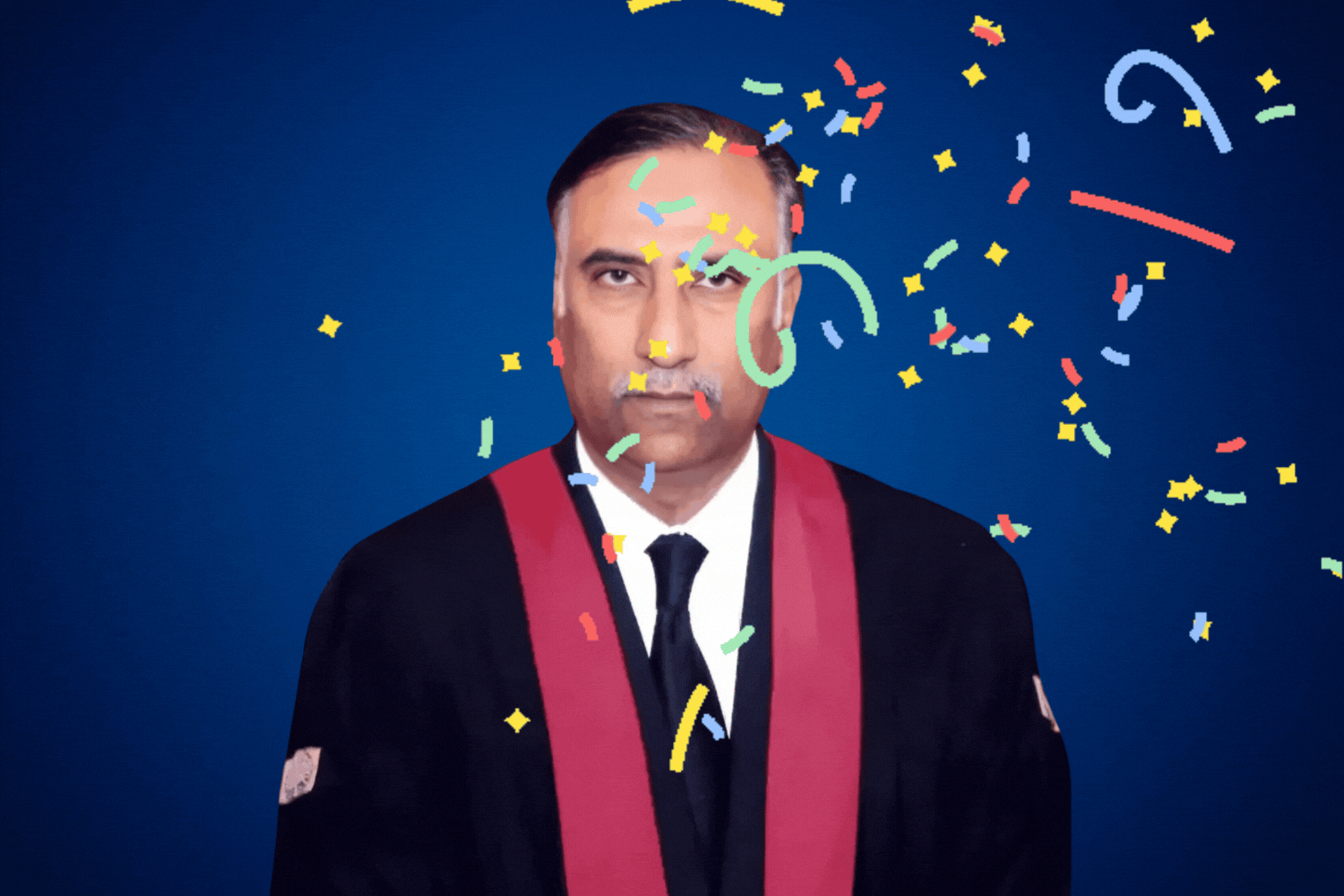Sarfraz Dogar appointed acting chief justice of Islamabad High Court amid seniority concerns
President to administer oath after senior IHC judges signal reluctance following transfer dispute

Asma Kundi
Producer, Islamabad
Asma Kundi is a multimedia broadcast journalist with an experience of almost 15 years. Served national and international media industry as reporter, producer and news editor.

Justice Sardar Muhammad Sarfraz Dogar, notified on Thursday as the acting chief justice of the Islamabad High Court (IHC).
Nukta
Five senior IHC judges publicly opposed Dogar's transfer
Supreme Court to welcome seven new judges in separate ceremony on Friday
Acting chief justices also appointed to three other high courts
Justice Sardar Muhammad Sarfraz Dogar has been appointed acting chief justice of the Islamabad High Court (IHC) and will be sworn in on Friday, with President Asif Ali Zardari administering the oath.
According to a notification issued by the Ministry of Law and Justice on Thursday, Dogar was appointed acting chief justice by the president and will serve "with effect from the date he takes oath of his office, till appointment of regular chief justice." Dogar has already moved to courtroom number one and has begun hearing cases.
The presidential role in the ceremony breaks from the tradition of having senior judges administer the oath. The decision follows speculation that five senior high court judges, who publicly opposed Justice Dogar's transfer, may decline to administer the oath.
These judges were Justice Mohsin Akhtar Kayani, Justice Tariq Mehmood Jahangiri, Justice Babar Sattar, Justice Sardar Ejaz Ishaq Khan and Justice Saman Rafat. The judges filed a representation challenging the transfers, arguing that under the constitution, a high court judge must take a new oath upon transfer to a different high court, which should affect their seniority ranking.
Justice Farooq cleared the way for Justice Dogar's appointment by dismissing this representation. His judgment referenced constitutional articles concerning transfers and the distinction between transfers and fresh appointments. He cited article 200 of the constitution, which allows the president to transfer a judge from one high court to another, with the judge's consent and after consultation with the chief justice of Pakistan and the chief justices of the involved high courts. The ruling emphasized that while the transfer is constitutionally valid, it does not require a new oath or imply changes to seniority.
Notably, four Supreme Court judges — Justice Mansoor Ali Shah, Justice Munib Akhtar, Justice Ayesha Malik and Justice Athar Minallah — expressed similar reservations in a letter to Chief Justice of Pakistan Yahya Afridi, describing the transfers as "suspect" in the absence of an oath-taking ceremony.
Appointments across the board
Separately, the oath-taking ceremony for seven newly appointed Supreme Court judges has been rescheduled for Friday following delays in their appointment notifications. Though originally planned for Thursday, the ceremony was postponed after the Ministry of Law and Justice issued the official notifications late Wednesday night.
The Supreme Court of Pakistan will welcome six new judges: Justice Aamer Farooq, outgoing Chief Justice of the Islamabad High Court; Justice Muhammad Shafi Siddiqui and Justice Salahuddin Panhwar from the Sindh High Court; Justice Muhammad Hashim Khan Kakar, Chief Justice of the Balochistan High Court; and Justice Ishtiaq Ibrahim and Justice Shakeel Ahmad from the Peshawar High Court. Chief Justice of Pakistan Yahya Afridi will administer their oaths.
Justice Miangul Hassan Aurangzeb has been appointed as an acting Supreme Court judge under article 181 of the Constitution, primarily to assist in clearing backlogged tax and commercial cases. This constitutional provision allows the president to temporarily elevate a high court judge to the Supreme Court. Justice Aurangzeb will serve in this capacity at the president's discretion, and may either return to the Islamabad High Court or receive a permanent appointment to the Supreme Court.
In a related development, the Law Ministry has announced the appointments of acting chief justices to three high courts: Justice Ejaz Swati will serve as Acting Chief Justice of the Balochistan High Court, Justice Junaid Ghaffar will serve as Acting Chief Justice of the Sindh High Court, and Justice S.M. Attique Shah will serve as Acting Chief Justice of the Peshawar High Court.







Comments
See what people are discussing